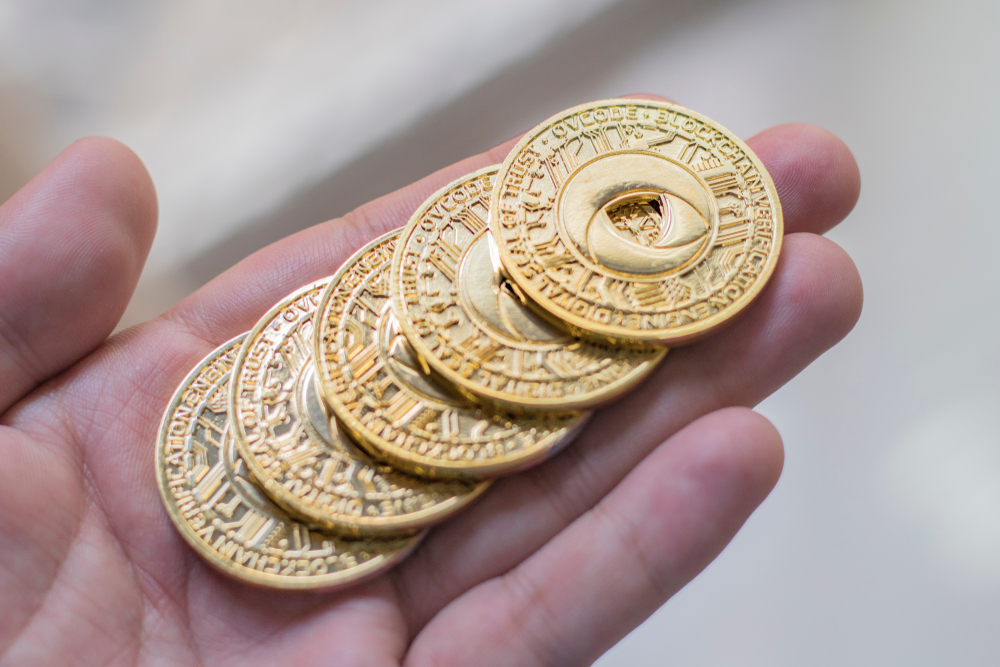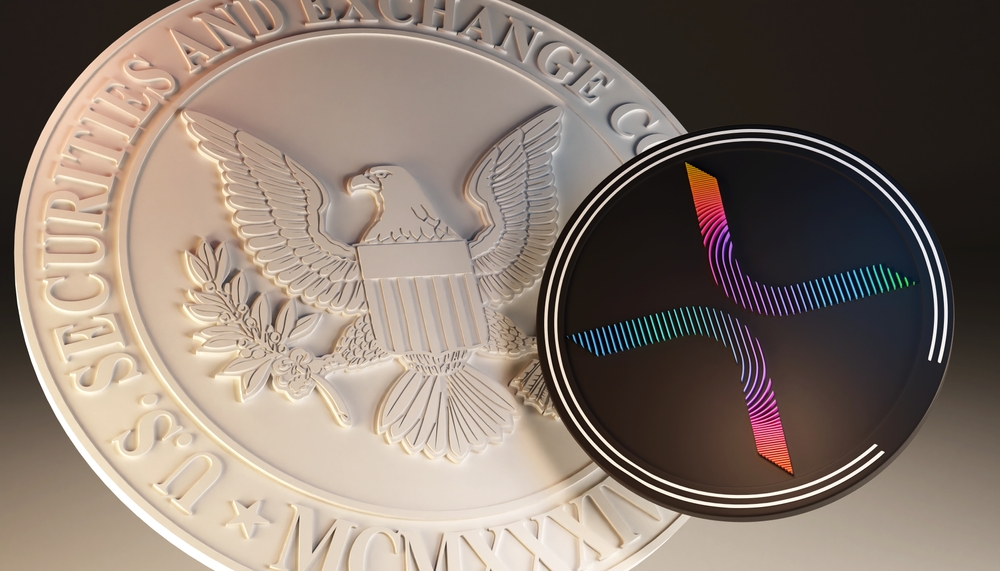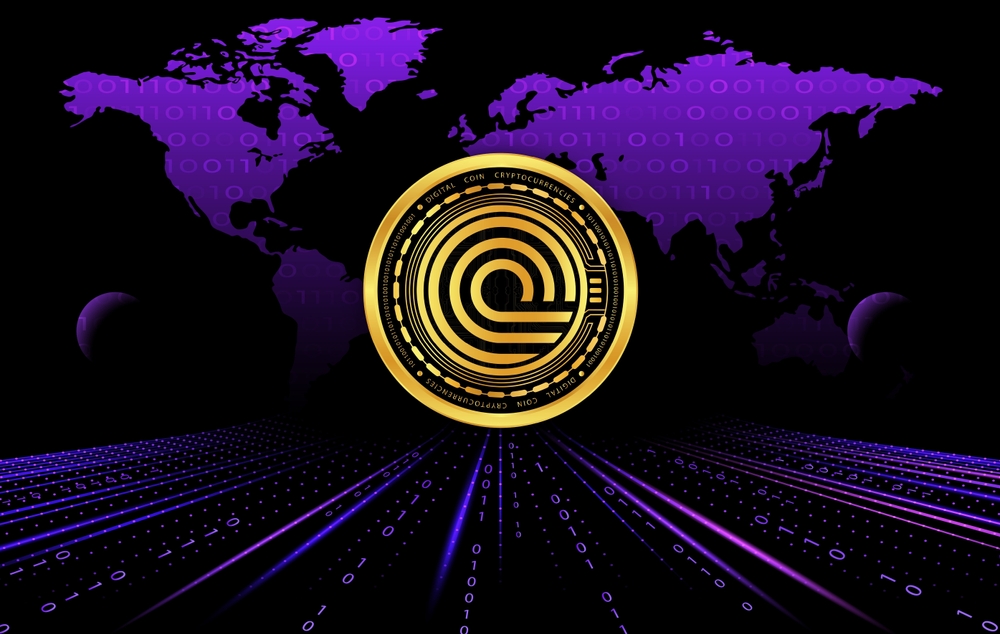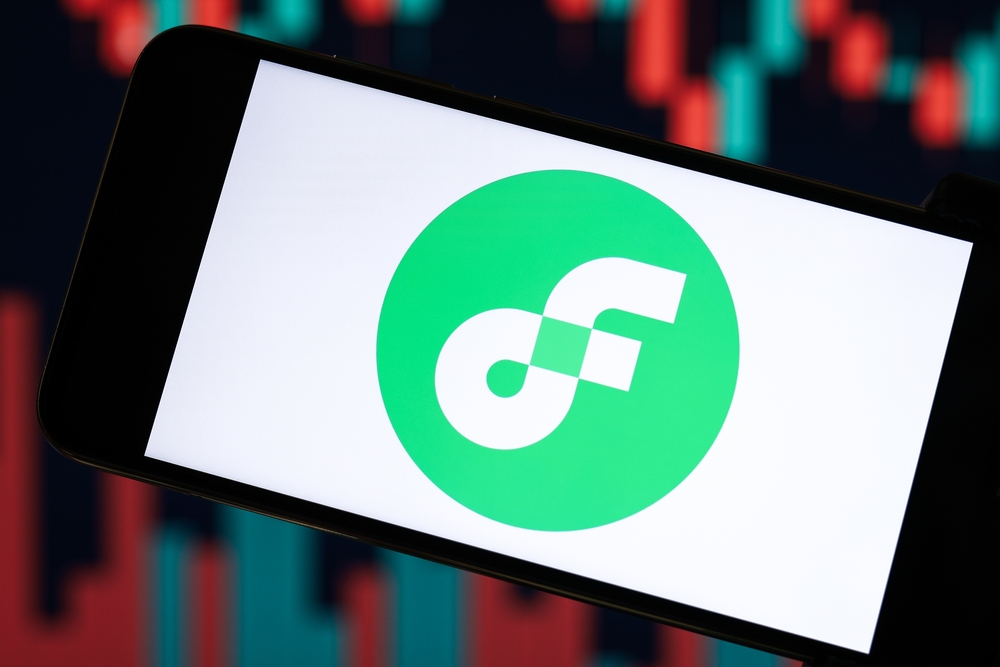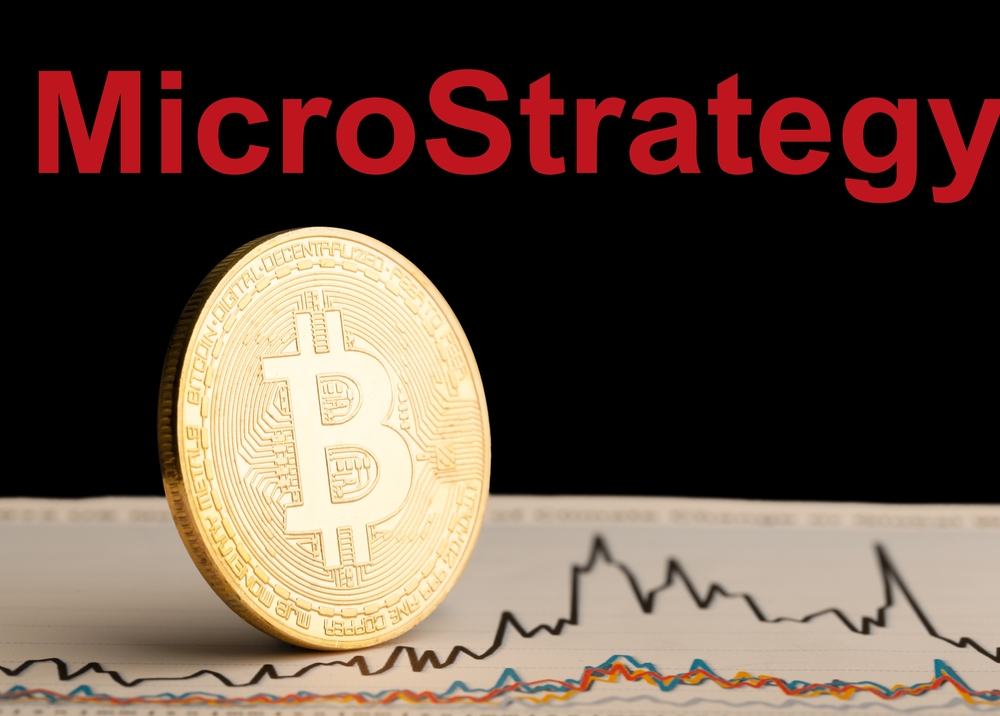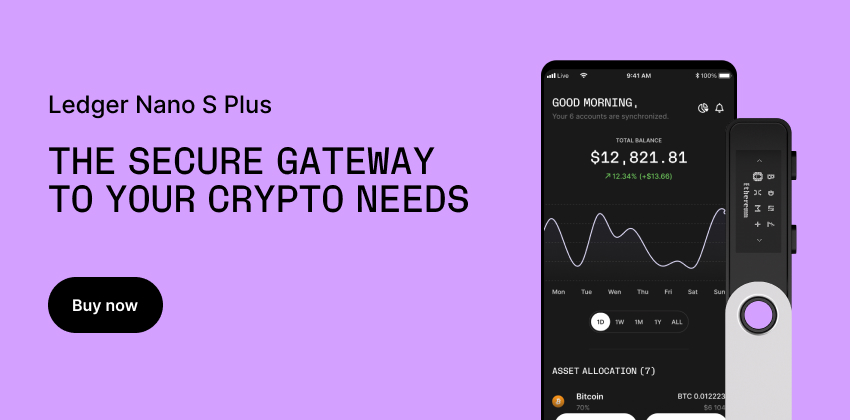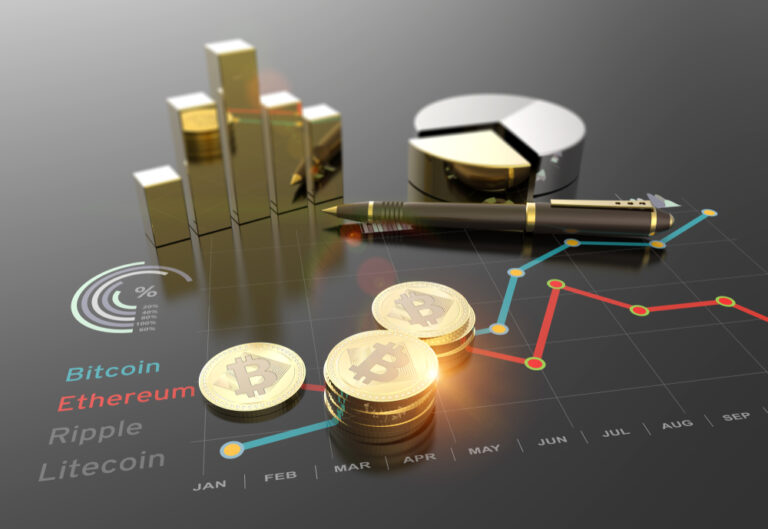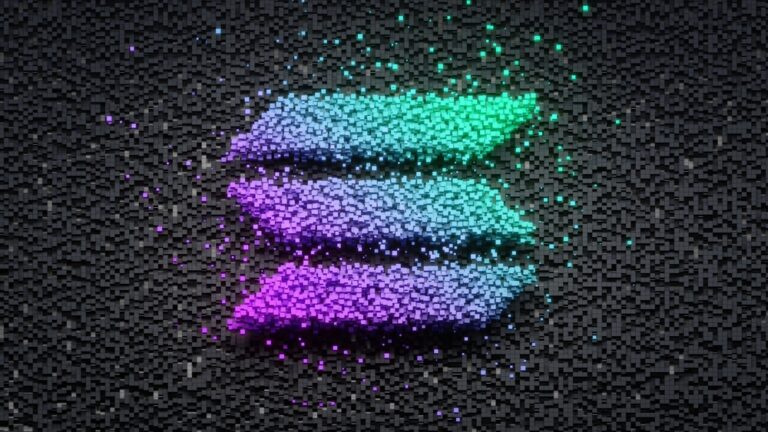Table of Contents
ToggleIOTA: Partnership with Abu Dhabi Unveiled, Plus Latest Updates
IOTA, a distributed ledger technology (DLT) platform, has been making waves in the world of blockchain-based solutions with its unique Tangle protocol. In recent times, the IOTA Foundation has been expanding its reach by partnering with various entities, one of which is the government of Abu Dhabi. This collaboration aims to establish a cutting-edge digital infrastructure and foster innovation within the regional DLT ecosystem.
Abu Dhabi, the capital of the United Arab Emirates, is keen on adopting advanced technologies that can help boost its economy and infrastructure. The partnership with IOTA demonstrates the city’s commitment and enthusiasm towards the blockchain industry. As the adoption of DLT solutions grows, we can expect significant advancements in blockchain regulations, tokenization of real-world assets, and the overall growth of the IOTA Foundation’s strategic presence in the global blockchain landscape.
Key Takeaways
- IOTA collaborates with Abu Dhabi to enhance digital infrastructure
- Partnership impacts regional DLT ecosystem and blockchain regulations
- Collaboration supports IOTA Foundation’s growth and global influence
IOTA’s Collaboration with Abu Dhabi
Strategic Importance for IOTA
IOTA has established a partnership with Abu Dhabi Global Market (ADGM) to explore and develop innovative use cases for the IOTA Tangle technology. This collaboration holds great strategic importance for IOTA, as it envisions expanding its influence in the Middle East region and fostering a more efficient and transparent data ecosystem.
The partnership focuses on various aspects, including digital identity, asset tokenization, and supply chain management. IOTA’s distributed ledger technology provides a scalable and secure solution, making it an ideal choice for such advancements. Through this collaboration, IOTA aims to showcase its potential for real-world applications and create a positive impact on various industries.
Abu Dhabi Global Market’s Role
Abu Dhabi Global Market, an international financial center and free zone in the United Arab Emirates, plays a crucial role in this partnership. With a vision to transform its financial sector, ADGM supports adopting emerging technologies and innovative solutions. By collaborating with IOTA, ADGM aims to develop and implement use cases that leverage the benefits of distributed ledger technology.
As a key player in the region, ADGM has attracted global attention from various stakeholders, including policymakers, entrepreneurs, and innovators like IOTA’s co-founder, Dominik Schiener, and its board member, Hamad Sayah Al Mazrouei.
This collaboration not only strengthens the bond between IOTA and ADGM but also opens doors for further alliances, creating a thriving environment for innovation and growth in the region.
Impact on Regional DLT Ecosystem
Stimulating Growth in the Middle East
The partnership between IOTA and Abu Dhabi is expected to significantly impact the regional distributed ledger technology (DLT) ecosystem. This collaboration aims to foster innovation and support the growth of DLT in the Middle East, especially within the smart city initiatives.
As the Middle East becomes increasingly open to technological advancements, the expansion of IOTA’s DLT solutions is likely to promote the development of new projects and collaborations in the region. Moreover, the implementation and integration of IOTA’s technology can encourage other local and international organizations to explore and invest in next-generation DLT solutions.
Through this partnership, IOTA aims to provide the region with cutting-edge, scalable, and secure DLT infrastructure, which can empower various industries to benefit from the transparency and efficiency associated with blockchain technology.
Blockchain Industry Opportunities
The collaboration between IOTA and Abu Dhabi opens up a wide range of opportunities for blockchain-related projects in the region. The integration of IOTA’s DLT framework in various sectors offers a robust foundation for businesses and governments to leverage blockchain technologies for their specific needs.
Some notable areas where IOTA’s technology can create new opportunities include:
Supply Chain Management: The transparency and immutability of IOTA’s DLT solutions can improve the traceability and efficiency of supply chain processes in the Middle East.
Fintech: IOTA’s DLT offers a unique approach to financial services, which can potentially revolutionize the fintech sector in the region by enabling faster, more secure, and cost-effective transactions.
IoT Integration: With the increasing importance of the Internet of Things (IoT) in smart city projects, the combination of IoT devices and IOTA’s DLT infrastructure can lead to innovative solutions, enhancing connectivity, and data security.
By establishing a strong presence in the Middle East, IOTA is expected to inspire further growth and opportunities in the regional DLT ecosystem, enabling various industries to innovate and thrive in an increasingly digital world.
Advancements in Blockchain Regulations
Developing a Regulatory Framework
The partnership between IOTA and Abu Dhabi has led to significant advancements in the regulatory landscape of blockchain technology. In order to foster innovation and growth within the industry, the Abu Dhabi Global Market (ADGM) has been actively working on developing a comprehensive regulatory framework for blockchain and distributed ledger technologies (DLTs). They have focused their efforts on establishing clear guidelines and requirements for operators in this space, ensuring a level of trust and transparency that is vital for the ongoing adoption of blockchain technologies.
One notable advancement in the ADGM framework is the introduction of the Registration Authority. This entity has been established to streamline the process of regulatory approval for new blockchain operators, reducing the barriers to entry and encouraging growth within the industry. By focusing on robust yet flexible regulations, the ADGM is setting the stage for advancements in blockchain applications and adoption in Abu Dhabi and beyond.
Regulators and Institutional Onboarding
The growing interest in blockchain technology among institutional players has highlighted the need for a solid regulatory environment. This can help mitigate potential risks and establish a secure foundation for the technology’s continued expansion. In this context, the collaboration between IOTA and Abu Dhabi has been instrumental in fostering a strong relationship between regulators and the blockchain industry.
The ADGM has taken several initiatives to engage with blockchain operators and promote dialogue between stakeholders. This includes hosting workshops and conferences aimed at addressing key regulatory challenges and fostering knowledge-sharing among industry participants. These efforts have been crucial in promoting the development of regulatory frameworks that support the safe and responsible adoption of blockchain technologies.
In addition to these initiatives, the ADGM has also established partnerships with key industry players and institutions. These collaborations are essential in promoting innovation, sharing knowledge, and ensuring that emerging blockchain applications are aligned with established regulatory standards.
Overall, the advancements in blockchain regulations brought about through the partnership between IOTA and Abu Dhabi demonstrate the growing commitment of regulators to embrace this transformative technology. By focusing on creating a collaborative and supportive regulatory environment, the ADGM is setting a strong foundation for the future growth and development of the blockchain industry.
Tokenization of Real-World Assets
Novelty in Asset Registration
The process of tokenization involves converting real-world assets into digital tokens that represent the same value on a blockchain. This innovative approach has the potential to revolutionize traditional asset registration and management methods. By leveraging the power of blockchain technology, tokenization provides a highly secure, transparent, and traceable means of managing assets (OECD).
Examples of real-world assets that can be tokenized include physical property, financial instruments, and even intellectual property rights. The tokenization of assets unlocks new possibilities for fractional ownership, leading to increased liquidity and simplified trading of assets (Emerald Insight).
Future of Property Rights on Blockchain
As more organizations and governments adopt blockchain-based solutions for asset management and registration, the future of property rights will increasingly be shaped by this technology. IOTA, for instance, has partnered with organizations and governments like Abu Dhabi to tokenize real-world assets and facilitate efficient, transparent, and secure transactions on the IOTA blockchain (Springer).
Blockchain-based property rights systems offer numerous benefits, including:
- Fast and secure transactions: By removing intermediaries, transactions are conducted directly between parties, leading to reduced costs and increased efficiency.
- Transparency and traceability: The blockchain ledger is publicly accessible, ensuring that everyone can verify asset ownership and transaction history.
- Reduced fraud and better dispute resolution: The immutability of the blockchain makes it nearly impossible to alter records, reducing the risk of fraud and improving trust in the system.
In conclusion, tokenization of real-world assets on blockchain platforms like IOTA is gaining traction, paving the way for a more efficient, transparent, and secure ecosystem for asset registration and management. As organizations and governments continue to explore the potential of tokenization, the future of property rights will be transformed, unlocking new opportunities and simplifying asset management processes.
IOTA Foundation’s Strategic Growth
Funding and Investments
IOTA Foundation has successfully made impressive strides in attracting significant funding and investments. One of the highlights of their financial growth was their collaboration with the IOTA Ecosystem DLT Foundation, which played a crucial role in pushing their initiatives forward. This partnership resulted in the foundation receiving an investment of $100 million, enabling them to scale their operations and develop their projects further.
These investments have led to the following achievements:
- Enhancement of the IOTA protocol and its underlying technologies
- Expansion of their team of talented professionals
- Increased public awareness and adoption of their Distributed Ledger Technology (DLT) solutions
Global Expansion and Adoption
With a sizeable financial investment in hand, IOTA Foundation has focused on expanding its reach globally. This has resulted in various strategic partnerships and collaborations aimed at increasing the adoption of IOTA’s DLT solutions.
One key partnership is with the Emirate of Abu Dhabi, which has a strong focus on technology and innovation. Working together, the IOTA Foundation, and Abu Dhabi’s local authorities have established a solid foundation for distributed ledger technology in the region. This partnership has opened the door for further collaborations with organizations and industries within the Indian Ocean region.
By securing such strategic relationships, IOTA Foundation has significantly impacted the growth of their ecosystem globally. This progress is offering improved security, efficiency, and transparency for various businesses and public institutions worldwide.
In conclusion, the IOTA Foundation has made significant strides in securing funding, investments, and forging strategic partnerships. These efforts have accelerated its global expansion and adoption, propelling it into becoming a prominent player in the world of DLT solutions.
Influence on the Global Blockchain Landscape
Market Players and Crypto Markets
The collaboration between IOTA and Abu Dhabi has a significant impact on the global blockchain landscape. This partnership highlights the growing interest of governments and organizations in exploring the potential of distributed ledger technology (DLT) such as IOTA for various use cases. As a major participant in the Blockchain Industry, IOTA’s global expansion into the Gulf Cooperation Council (GCC) region widens the reach and influence of its innovative platform.
In the context of Cryptocurrency, IOTA’s Tangle technology, an innovative alternative to traditional blockchain architecture, contributes to the diversity of the crypto market. Unlike many cryptocurrencies that rely on proof-of-work or proof-of-stake consensus mechanisms, IOTA’s Tangle employs a directed acyclic graph (DAG) to enable scalable and secure transactions with minimal transaction fees. As a result, IOTA’s involvement in the Abu Dhabi project could potentially cement its position as a major player in the emerging realm of Web3 and decentralization.
Competitive Positioning in Web3
IOTA’s partnership with Abu Dhabi signals a step towards strengthening its competitive positioning in the progressing Web3 landscape. Web3 refers to the next generation of the internet, which emphasizes decentralization, privacy, and data ownership. Bringing its unique Tangle technology to the forefront, through partnerships like the one with Abu Dhabi, allows IOTA to showcase its capabilities as a versatile platform that addresses some of the current limitations in traditional blockchain networks.
In addition, this collaboration contributes to shaping the future prospects of the Blockchain Industry. For instance, IOTA’s Tangle technology, when applied to projects in Abu Dhabi and beyond, could lead to innovative solutions in areas ranging from supply chain management to energy distribution and smart city initiatives. Tapping into such opportunities enables IOTA to further solidify its presence in the global blockchain ecosystem.
Ultimately, IOTA’s partnership with Abu Dhabi and its continued development in the blockchain space demonstrate the project’s ongoing potential to influence the global landscape of distributed ledger technology. Not only does this collaboration strengthen IOTA’s position within the Cryptocurrency market, but it also magnifies the influence of its unique Tangle technology in shaping the future of Web3 and decentralization.
Future of Digital Infrastructure and Public Goods
Innovations by IOTA Protocol
The IOTA protocol has been making strides in shaping the future of digital infrastructure and public goods. As a distributed ledger technology (DLT) focused on the Internet of Things (IoT) and machine-to-machine economy, IOTA enables efficient data communication, offering higher scalability and speed compared to traditional blockchain systems.
IOTA’s Tangle technology uses a Directed Acyclic Graph (DAG) structure that eliminates the need for miners and speeds up transaction times. This makes it suitable for handling microtransactions and ensuring low energy consumption, contributing to a greener IoT ecosystem in areas like the Gulf Cooperation Council countries, where sustainable initiatives are being explored such as the Green IoT in GCC countries.
Contribution to Web3 & Digital Infrastructure
IOTA is playing a pivotal role in the development of Web3 and digital infrastructure, a decentralized version of the internet that aims to provide public goods infrastructure without centralized control. IOTA’s Tangle architecture can be easily integrated with emerging technologies like smart cities, leading to the creation of ecosystems that enhance urban living through more efficient services and data management.
One example is in Abu Dhabi, where IOTA’s Tangle is being explored for creating a searchable 3D smart city model, enabling better decision-making for city planning and development. The partnership with Abu Dhabi could pave the way for further collaborations, fostering a more interconnected and data-driven world.
In summary, IOTA is driving innovation in digital infrastructure and public goods through its scalable and efficient Tangle technology. This has the potential to contribute significantly to the development of Web3 and smart cities, enabling better resource management and sustainable development.
Frequently Asked Questions
What recent partnerships has IOTA formed in Abu Dhabi, and what implications do these alliances have?
IOTA is focusing on forming significant collaborations in Abu Dhabi to advance its technology and increase its adoption. One notable partnership involves Smart Dubai, an initiative aiming to make Dubai the smartest and happiest city in the world. This collaboration is expected to enhance the implementation of IOTA’s Tangle technology in various sectors of the city, improving efficiency and sustainability.
How will the IOTA partnership impact the price and market predictions for the cryptocurrency?
It is difficult to predict how the partnerships in Abu Dhabi will directly impact IOTA’s price and market position. However, increased adoption resulting from these alliances could potentially enhance the credibility of the cryptocurrency and create greater demand, leading to an uptick in value.
Can you explain IOTA’s Tangle technology that differentiates it from blockchain networks like Bitcoin?
IOTA’s Tangle technology is a significant departure from traditional blockchain networks. It uses a directed acyclic graph (DAG) instead of a linear chain to record transactions. This allows for greater scalability, faster transactions, and reduced costs as there are no miners; hence, no fees involved. This design makes IOTA more suitable for applications relying on the Internet of Things (IoT) and machine-to-machine transactions.
What are the latest developments in IOTA’s technology or strategy following its collaboration with entities in Abu Dhabi?
IOTA is continually working on enhancing its technology and strategy. Some of its latest developments include the creation of a searchable 3D smart city model for Abu Dhabi, which aims to improve city planning and sustainability. Additionally, IOTA is focusing on integrating its Tangle technology with other innovative technologies such as the blockchain to enable efficient and transparent collaboration among participating entities.
Who are the founders of IOTA, and what was their vision when creating this cryptocurrency?
IOTA was founded in 2015 by David Sønstebø, Sergey Ivancheglo, Dominik Schiener, and Dr. Serguei Popov. Their vision was to create a decentralized cryptocurrency platform that could support the Internet of Things (IoT) ecosystem, enabling feeless and scalable machine-to-machine (M2M) transactions.
What advancements or projects has IOTA introduced that showcase its progress and performance in the crypto market?
IOTA has introduced several projects to aid its progression and performance in the cryptocurrency market. Some key advancements include the launch of the IOTA Data Marketplace, a platform for exchanging IoT data, and the development of Qubic, a protocol for enabling smart contracts, oracles, and outsourced computations on the IOTA Tangle network. These projects, combined with strategic partnerships in Abu Dhabi and other regions, showcase IOTA’s potential as a leading cryptocurrency in the IoT space.






